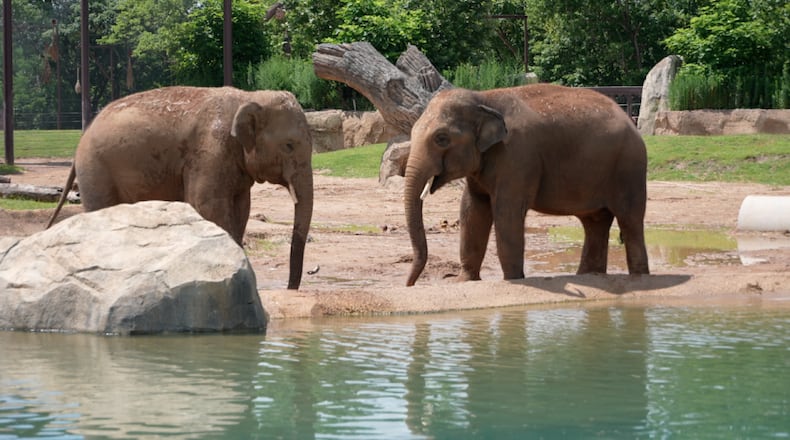“This vaccine, created by Baylor College of Medicine and Houston Zoo, is a tremendous source of hope for the future of Asian elephants, both in zoos and in the wild,” said Dr. Mike Wenninger, director of animal health at the zoo. “We are incredibly grateful for this collaboration and that it helped save Sanjay and Kabir’s lives.”
EEHV has a mortality rate of 60-80%, impacting elephants in human care and elephants that are free-roaming.
The zoo said they tested four elephants transferred from the Dublin Zoo to Cincinnati in 2023. Those tests revealed that Sanjay and Kabir “lacked maternal antibodies against EEHV,” making them more vulnerable to the virus.
In anticipation of exposure, the two elephants were given plasma transfusions from elephants with the antibodies, but the transfused antibodies did not reach levels similar to naturally infected elephants, the zoo said. Sanjay and Kabir then received the new EEHV vaccine in the fall of 2024, helping develop the antibody response.
When the zoo detected that their herd mate was shedding EEHV, they found low levels of the virus in Sanjay’s blood, but found that all of his other blood values remained OK and he never developed any symptoms. Eventually, his viral levels cleared while antibody levels continued to rise. Like Sanjay, Kabir also showed signs of a mild infection and recovered without any treatment.
The Cincinnati Zoo said these cases mark the first documented natural exposures following vaccination, suggesting that the vaccine can prevent severe disease.
Sanjay and Kabir remain with the herd at the Elephant Trek.
About the Author
